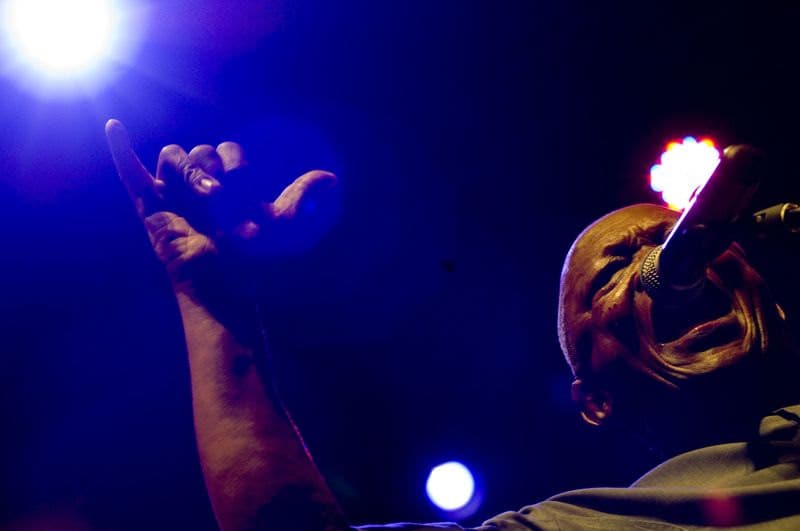Hugh Masekela’s ‘Stimela’ gets a makeover
Wynter Gordon's remake of 'Stimela' suggests more challenging possibilities.

Hugh Masekela in 2012. Image credit Mário Pires via Flickr.
Wynter Gordon, theR&B singer-songwriter, is taking a considerable step outside her comfortable mid-commercial range with her new single, “Stimela,” and its self-directed video, but it’s hard to argue that it isn’t reeking of the worst type of structural World Music arrogance. It practically has it all: the cleverly metaphorical words from Hugh Masekela’s lament of migrant workers reduced to exotic vocal effect. (Or are they? “Running, running…”) The full gamut of stereotypes of Africa – wilderness, tribalism, “wisdom and truth” and the ignorant generalization of having a tiger to represent Africa. Watch:
But something in the blinking, refracting shadows of the video and the Weeknd-inspired cross-linking swirl of wavering sound suggests more challenging possibilities: borders dissolving between human, animal and machine, and between certainties and stereotypes. “I’m a hostage in this skin,” she sings, yet somehow the music and images make escape from the power structures sound eminently possible.
And here’s the original:
- “Stimela” is available as a free download on Wynter Gordon’s EP Human Condition: Doleo.



















